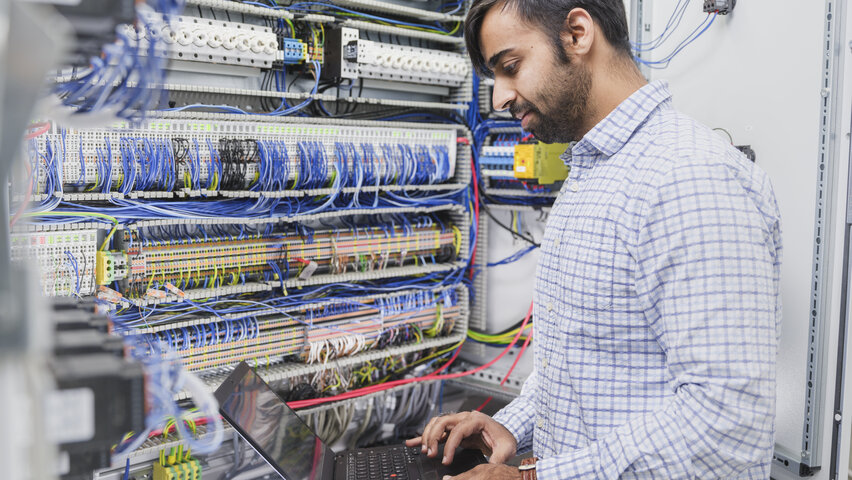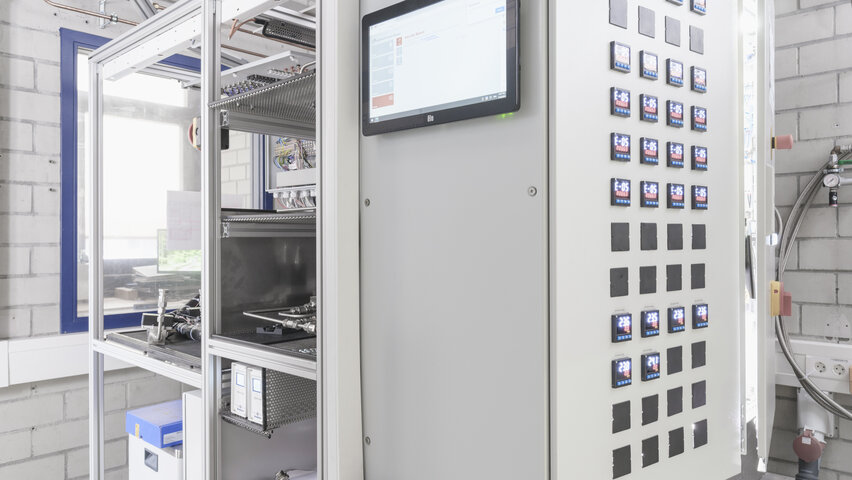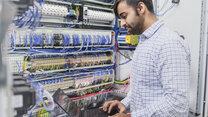The story of TestWise Innovation began with a moment of frustration in the ICM junior research group focused on sensor-based development of hydrogen fuel cells. Months were lost for Bhanu Seth and his colleagues at IPEK because they first had to set up a test lab. Time they would have preferred to dedicate to researching their innovative fuel cell system. The frustration was especially significant, recalls Bhanu Seth, because all the necessary hardware and software components were already available, but no one had yet developed them into a complete system. A problem faced by many research groups. "That’s when we realized we could help many researchers if we further developed our test bench into an open solution," explains Seth.

The Test Bench for the Mobility of the Future
Setting up suitable test benches often results in a significant loss of time in research. The members of the ICM junior research group at the Institute for Product Development at KIT were unwilling to accept this. They developed their test lab into a modular and transferable system. Under the name TestWise Innovation, the approach from research is to be developed into a startup that aims to provide universities and smaller companies with more freedom to focus on science and product development. The knowledge for the first steps towards founding is provided by the ICM Early Ride Program

The team then designed a modular test lab that integrates various sensors, actuators and measurement devices, coupled with a software platform that consolidates all incoming data. The hardware and software setup of the prototype is now complete, with only the final issues remaining before full implementation. Since the research group focuses on fuel cells, the first version is naturally tailored to this technology. However, the developers have ensured it can be easily adapted to other electromobility technologies, such as batteries.
There are some commercially available test benches, which although expensive, do provide a quick solution. But they lack the hardware flexibility and software freedom that researchers require to integrate a variety of components. "Our approach allows for extensive plug-and-play functionality to create test environments with customized and expandable equipment solutions with minimal effort," says Bhanu Seth. Because TestWise Innovation uses open-source software, users can even integrate their own components. This modular architecture allows the test lab to be upgraded over the years as the scope of the research progresses ahead.
Bhanu Seth has a clear vision of the potential target groups: "We want to start with research groups from Karlsruhe and then expand to other universities, tech start-ups, and small to medium-sized companies." TestWise Innovation provides value primarily by freeing up time for the essentials. Users of the system benefit from the ability to design their test bench quickly and easily. Of course, the saying time is money applies here, especially in an entrepreneurial context. However, the gains go far beyond financial profit increases. TestWise’s approach can also accelerate the research and development of sustainable mobility technologies of the future, delivering a societal benefit.
ICM Early Ride Program
The ICM Early Ride Program, is an incubator program for innovation projects originating from the academic environment in Baden-Württemberg, with a strong focus on mobility and production. Participants learn to think entrepreneurially and discover, test, and leverage market potentials.



